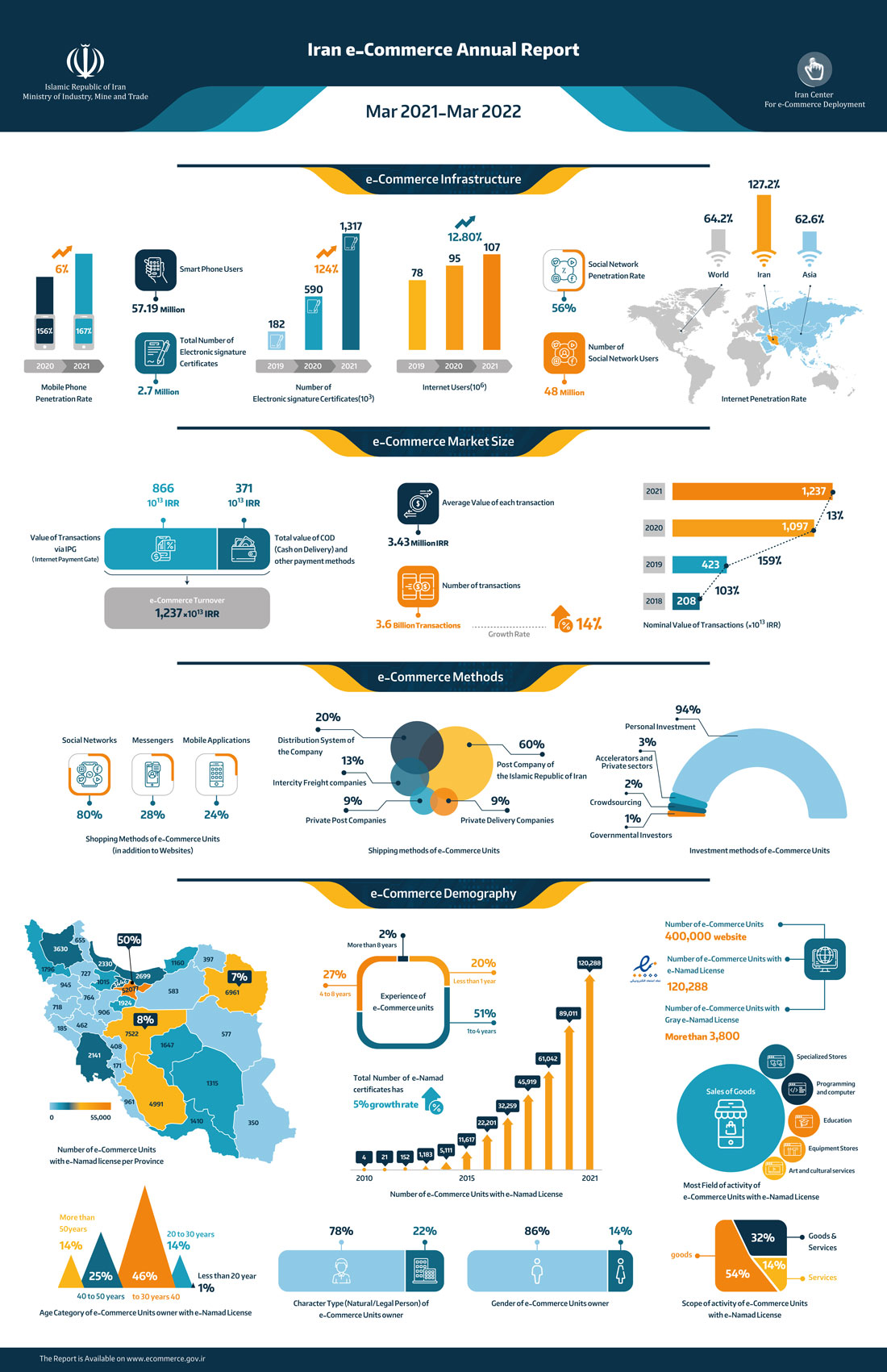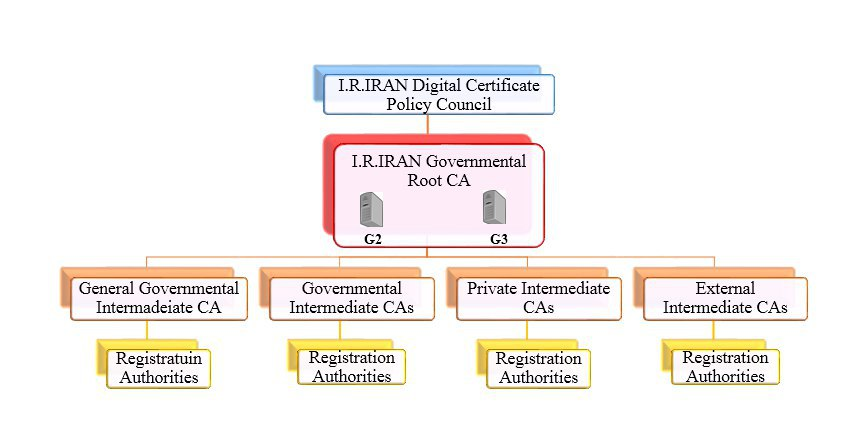| Preface | List of Services | Iran e-Commerce Report | Contact Us |
|---|
Preface
Based on article 80 and article 86 of e-Commerce law -adopted in 2003- and resolution adopted by Cabinet of Ministers at a meeting dated 8/26/2009 and according to the joint proposal of the former Ministry of Commerce and the former department of management development and Human Resources of the president, The Statute of Iran Center for e-Commerce Development (ICeCD) was approved.
Accordingly, the establishment, implementation and development of e-commerce in the country, using national and international instruments and standards, in accordance with Iranian and Islamic culture and supporting the activities of e-commerce, and promoting the level of application of information and communication technology in economics and commerce, have been assigned to ICeCD.
Currently, ICeCD is responsible for implementation and development of five national systems, including Public e-Procurement System, Comprehensive e-commerce system, eTrust Seal (eNAMAD), Root Certification Authority (GRCA) and General Governmental Intermediate Certification Authority (GICA).
List of Services
|
No. |
Title |
Introduction |
Website |
|
1 |
Issuance of digital signature certificate |
||
|
2 |
Issuing organizational seal certificate (legal
entities) |
||
|
3 |
SSL certificate issuance |
||
|
4 |
Issuing secure email certificate |
||
|
5 |
Code signing certificate issuance |
||
|
6 |
Providing Confirmation Timestamp |
||
|
7 |
Issuing permit for activity of subsidiary
intermediate certificate authorities (CA) |
||
|
8 |
Issuing permit for activity of intermediate
certificate authorities (CA) |
||
|
9 |
Issuing permit for activity of electronic
certificate registration offices |
||
|
10 |
Issuing Electronic Trust Symbol (ENAMAD)
certificate |
||
|
11 |
Investigating violations and monitoring of
online businesses |
||
|
12 |
Online businesses ranking |
||
|
13 |
Identification and authentication of customers
of online businesses |
||
|
14 |
Issuing authentication certificate for the
public key infrastructure (PKI) algorithm |
||
|
15 |
Issuing authentication certificate for
encryption modules of public key infrastructure (PKI) |
||
|
16 |
Issuing authentication certificate for digital
certificate issuance and management systems |
||
|
17 |
Issuing authentication certificate for public
key infrastructure (PKI) software |
||
|
18 |
Managing public electronic tenders |
||
|
19 |
Management of public electronic small and
medium transactions |
||
|
20 |
Managing public electronic tenders |
||
|
21 |
Consultation and education in the field of
ecommerce |
||
|
22 |
Replies to inquiries of digital certificate
status |
||
|
23 |
Inspection and monitoring of the intermediate
certificate authorities (CA) |
||
|
24 |
Inspection and monitoring of the digital
certificate registration offices |
||
|
25 |
Awarding ecommerce prize |
||
|
26 |
Addressing ecommerce complaint |
Iran e-Commerce Report (Mar-Sep 2020)
Abstract
The following document is the annual report of Iran's e-commerce in 2021. In this report, e-commerce indicators have been measured, monitored, and discussed in three categories: "e-commerce infrastructure", "e-commerce market size", and Methodology and Demography of e-commerce". The data needed to measure e-commerce infrastructure and performance indicators have been collected from recourses such as World Bank reports, Statistics Center of Iran, the Central Bank of the Islamic Republic of Iran, and the Ministry of Communications and Information Technology. The data needed to measure the Demography of e-commerce has been collected from a questionnaire completed by a number of online businesses. The main results of the e-commerce report of Iran in 20 Mar 2020 - 20 Mar 2021 are as follows:
E-Commerce Infrastructure:
- Internet penetration rate has reached 127.2%, which has increased by 13% compared to the previous year.
- Smart phone penetration rate has reached 166%, which has increased by 6% compared to the previous year.
- More than 1317000 electronic signature certificates have been issued in the country's public key infrastructure, which has increased by 124% compared to the previous year.
E-Commerce Market Size:
- The nominal volume of e-commerce transactions was 1,237 thousand billion Toman, which has increased by 13% compared to the previous year.
- The average amount of each online purchase is 343 thousand Toman.
- The total number of e-commerce transactions was about 3.6 billion, which has increased by 14% compared to the previous year.
- The total number of G2G/G2B was more than 345 thousand, which has increased by 2% compared to the previous year.
E-Commerce Methods and Demography:
- Number of eNamad trust seals issued to ecommerce units was more than 35000, which has increased by 5% compared to the previous year.
- Issuing Gray enamad for small online businesses has been started in Azar 1400 and more than 3800 gray enamad had been issued until end of 1400.
- 80 % of e-commerce units with e-Namad license, use social networks in addition to website.
- About 94% of ecommerce units, use personal investors for deployment.
- About 60% of ecommerce units, use <
- 60% of ecommerce units with e-Namad license owners, are between 30 and 40 years old.
- 78% of ecommerce units owners, who have received e-Namad license, have natural character type.

Also, for downloading 'Iran e-Commerce Annual Report (2020)', click here

